Women and girls, key players in intercultural dialogue
Article published on 26-08-2017The training module „Women and girls, key players in intercultural dialogue”, from UNESCO’s Academy of Young Women, offered by Ms. Rodica Precupeţu – expert on human rights, national minorities, interethnic and intercultural dialogue, former advisor to the Government of Romania in the Department of Interethnic Relations – focused on the knowledge and understanding of the ethnocultural and religious diversity of today’s world, our region, so that women can fulfill their aspirations, enjoy respect and a dignified status.
The 20 national historical minorities in Romania were reviewed, after which the participants had the opportunity to talk about the situation of women and the ethnocultural diversity of their country.
The next step was to debate which diversity management formula is more correct and more advantageous for today’s society, multicultural approach or intercultural approach? The participants were grouped into two teams – one looking to find the reasons why a multicultural approach prevails in some countries, the other trying to explain the reasons why today the multicultural approach is losing ground and there is more and more talk about interculturality, the need for dialogue between languages, cultures and religions in society. The exercise was done through a role-playing game, starting with the famous words of German Chancellor Angela Merkel, „multiculturalism failed” (2010).
If at first there was confusion between the two terms – multicultural and intercultural – after the brainstorming in each team the two approaches could be correctly defined, the participants giving examples of their experience. The elements characteristic of the two notions were systematized – one leading to self-sufficiency, self-isolation, lack of collaboration and solidarity (the multicultural approach), the other leading to communication, dialogue, collaboration and solidarity (the intercultural approach). Experience has shown that in countries where intercultural policies are encouraged and implemented there is no danger of identity being erased, on the contrary, groups can help and potentiate each other, the space open to creativity, collaboration, and social progress being much broader.
The second part of this module was devoted to a project simulation: first, the participants outlined a series of problems, shortcomings related to the status of women in society, including minority women. This resulted in a list of 8 important issues, of which – by vote – the first two considered the most important ones were selected. The question raised on the first day of the Academy was reiterated – „what can I do in the community in my country to help solve these problems and bring about a change for the better?” The responses materialized in two project proposals:
- A package of measures applicable to Education, consisting of completing the curriculum, non-formal education projects, exchanges of experience with schools and organizations from other countries, etc., to educate both boys and girls from a young age in a spirit of respect and equal opportunities for women and men;
- A package of Media Information and Promotion measures aimed at raising public awareness of women’s rights, alleviating domestic violence, fighting women’s image, encouraging „invisible” women to have a voice in society and defend their rights.



























